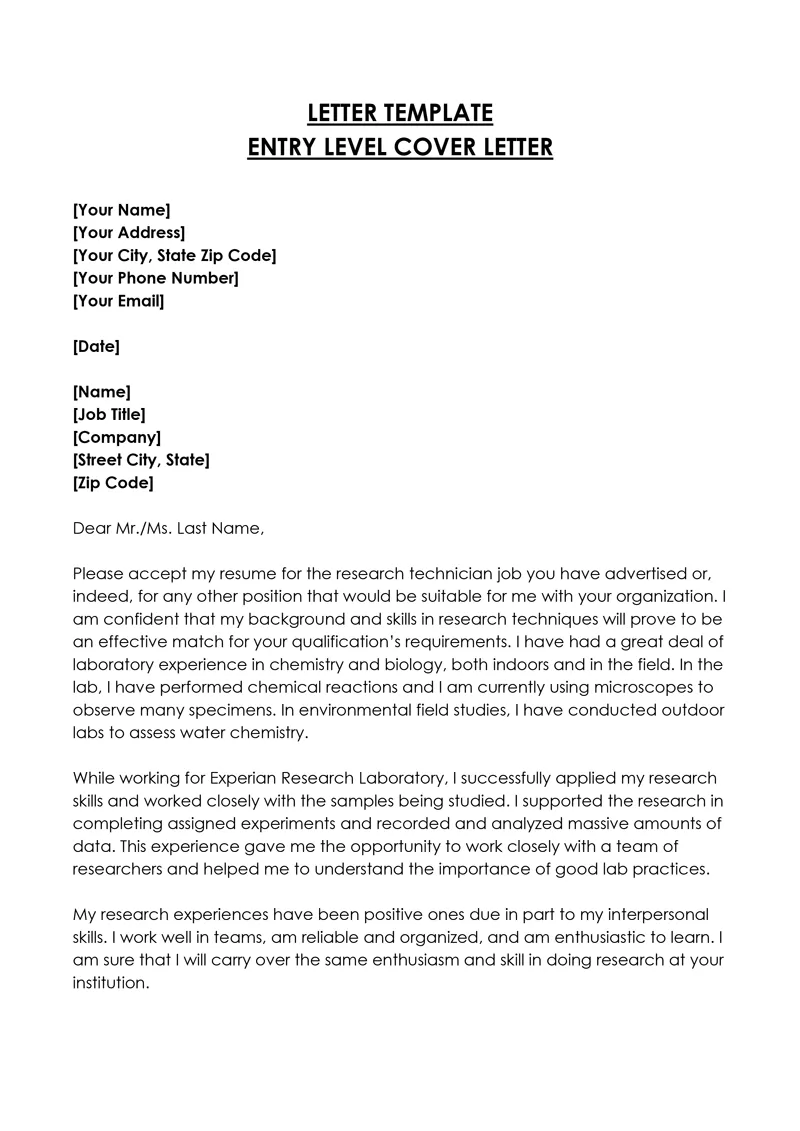What is an Entry-Level Cover Letter?
An entry-level cover letter is a document that accompanies your resume when applying for jobs for which you have little to no professional experience. Its primary purpose is to introduce you to the hiring manager, highlight your relevant skills and qualifications, and express your enthusiasm for the position and the company. Because you may lack extensive work history, these cover letters often focus on academic achievements, extracurricular activities, volunteer work, and any transferable skills that make you a suitable candidate. They should demonstrate your understanding of the job requirements and articulate your career aspirations.
Why Are Cover Letters Important for Entry-Level Jobs?
Cover letters are crucial for entry-level positions because they provide an opportunity to explain the ‘why’ behind your application. They help you bridge the gap between your experience (or lack thereof) and the job requirements. Since entry-level candidates often have similar qualifications, a well-written cover letter can set you apart by showcasing your personality, communication skills, and genuine interest in the role. It allows you to articulate your career goals, demonstrate your understanding of the company, and highlight the skills you’ve developed through education, internships, or other experiences that align with the job’s needs. Furthermore, it offers a chance to address any potential concerns a hiring manager might have about your lack of direct experience.
Top 5 Entry-Level Cover Letter Samples
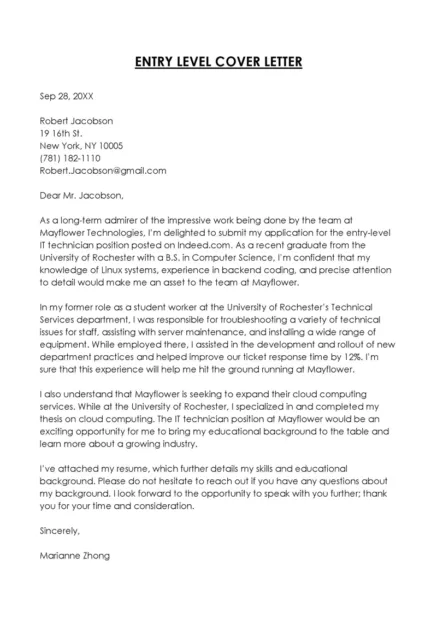
Below are five distinct entry-level cover letter samples, each tailored to different situations and backgrounds. Reviewing these examples can give you a solid understanding of different approaches and help you personalize your own cover letter effectively. Remember to always tailor your letter to the specific job and company you are applying to, highlighting the skills and experiences most relevant to their needs.
Sample 1 The Enthusiastic Recent Graduate
This sample is ideal for recent graduates who want to convey excitement and eagerness to learn. It should highlight academic achievements, relevant coursework, and any projects or internships that showcase practical skills. The tone should be upbeat and professional, demonstrating a strong desire to contribute to the company. This type of cover letter should clearly state your career goals and how the position aligns with your aspirations. Use this sample if you are fresh out of college and have limited professional experience.
Key Components of the Enthusiastic Cover Letter
- Highlighting academic achievements such as GPA or Dean’s List.
- Mentioning relevant coursework and projects.
- Expressing genuine excitement for the opportunity.
- Clearly stating career goals.
Highlighting Relevant Skills
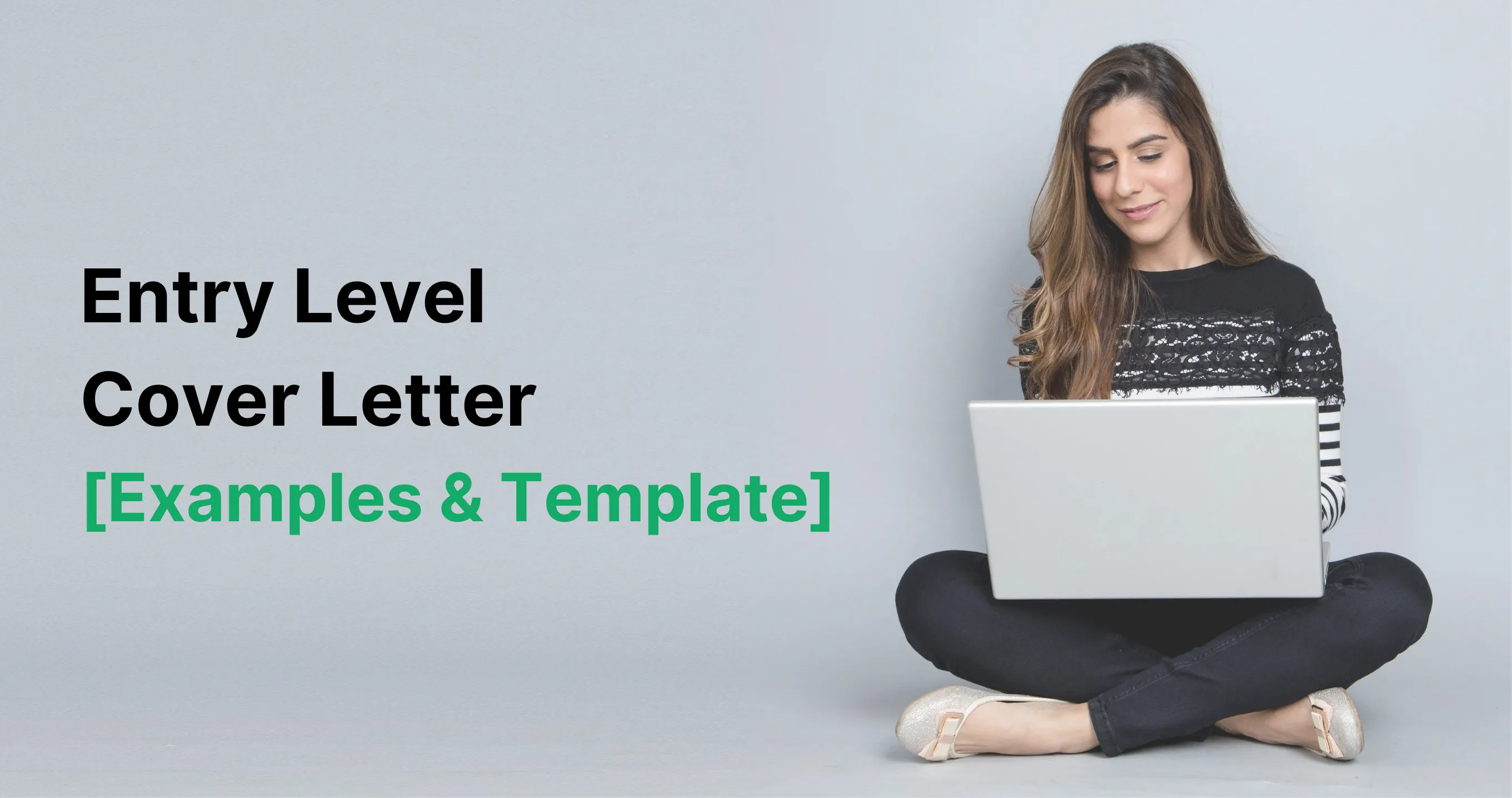
Focus on transferable skills such as communication, teamwork, problem-solving, and time management. Provide specific examples of how you’ve used these skills in academic or extracurricular settings. Quantify your achievements whenever possible; for instance, if you were a team leader, mention the number of team members you managed or the success of a project you led. Use action verbs to describe your responsibilities and accomplishments, demonstrating your ability to take initiative and achieve results. This sample is particularly effective when aligned with the job description.
Sample 2 The Skills-Focused Applicant
This sample is perfect for candidates who want to emphasize skills gained through various experiences, even if those experiences are not directly related to the job. It focuses on transferable skills, such as communication, organization, and problem-solving, and how they apply to the role. It should highlight any projects, volunteer work, or part-time jobs where these skills were utilized. Tailor your cover letter to the specific job description by identifying the key skills required and explaining how your abilities align with those requirements. This type of cover letter helps bridge the gap between what you’ve done and what the employer needs.
Emphasizing Transferable Skills
Transferable skills are skills you can use in any job. Examples include communication, teamwork, leadership, and organization. Showcase how you’ve used these skills in different settings, such as school projects, volunteer work, or part-time jobs. Explain how these skills will help you succeed in the new role. For instance, if the job requires excellent communication skills, describe a time you successfully presented a project or mediated a conflict. By showcasing transferable skills, you demonstrate adaptability and the ability to learn quickly.
Quantifying Achievements
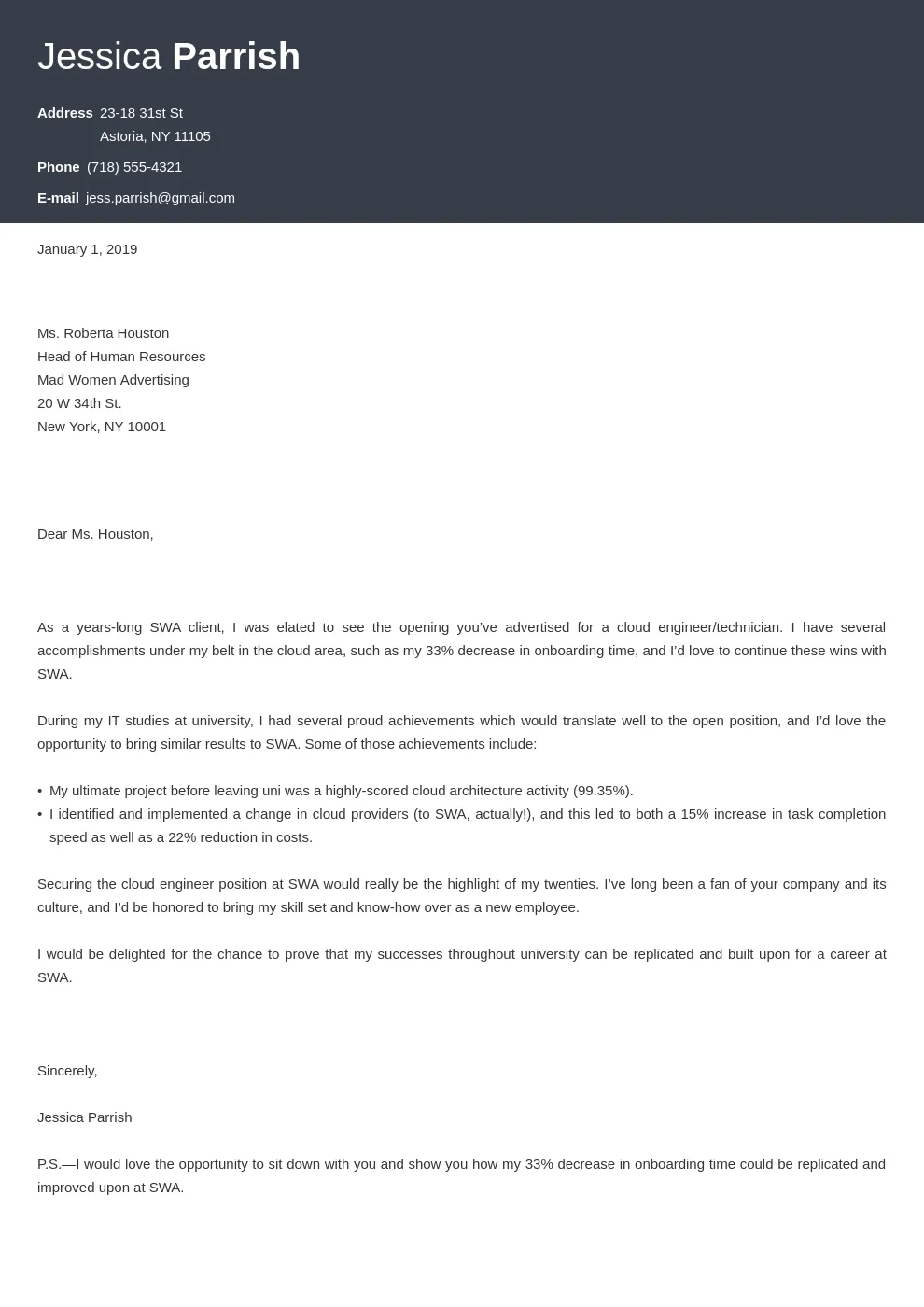
Quantifying your achievements adds credibility and demonstrates your impact. Use numbers and specific examples to illustrate your accomplishments. If you improved efficiency in a previous role, state the percentage of improvement. If you managed a project, mention the number of people involved or the project’s outcome. This level of detail helps the hiring manager understand your value and the tangible benefits you can bring to the company. Using quantifiable data helps you stand out and provides concrete evidence of your capabilities. Remember to tailor your data to align with the expectations of the target role.
Sample 3 The Career Changer’s Cover Letter
For those transitioning careers, this sample focuses on highlighting transferable skills from your previous role while addressing the ‘skills gap.’ It explains why you’re changing careers and how your experiences and skills align with the new job. This letter should emphasize your enthusiasm for the new field and your commitment to learning. Frame your career change as a strategic decision to leverage your existing skills in a new and exciting environment. Be clear about your intentions and how your past experiences make you a strong candidate, even without direct experience.
Addressing the Skills Gap
Acknowledge any gaps between your previous experience and the requirements of the new role. Briefly explain why you’re changing careers and how your existing skills can be applied to the new field. This can include self-training, online courses, or any relevant projects you’ve completed. Highlight your willingness to learn and adapt to new challenges. This demonstrates your proactive approach and your commitment to bridging the gap.
Showcasing Adaptability
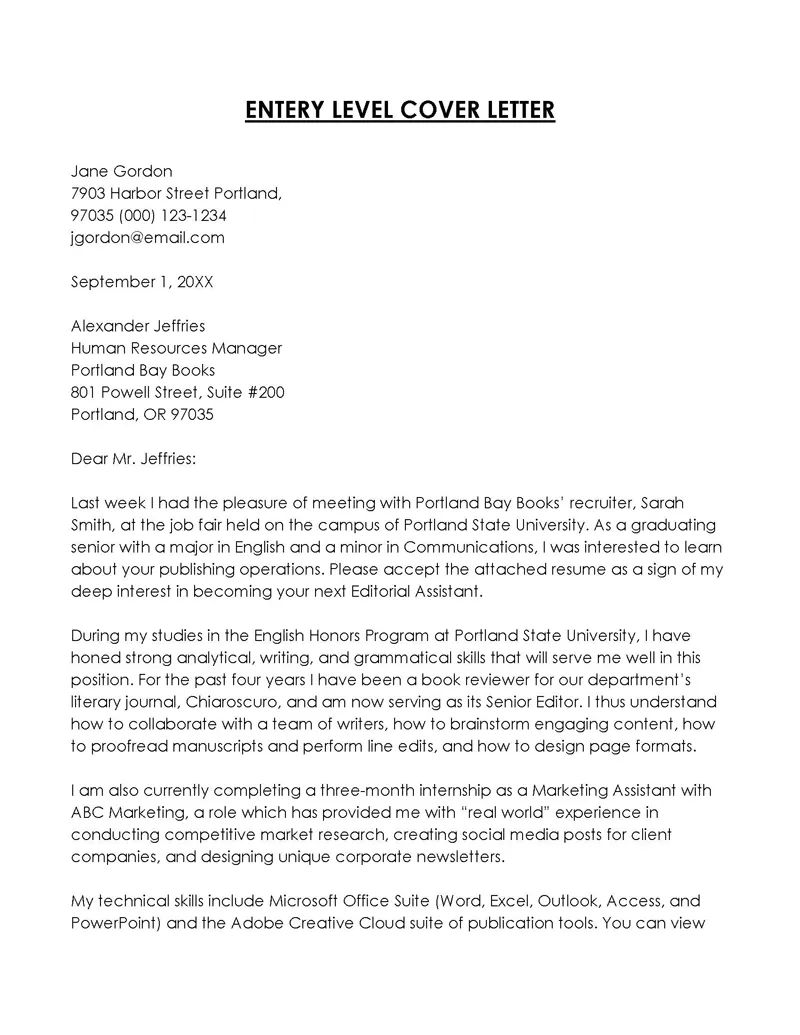
Demonstrate your adaptability by highlighting your ability to learn new skills and thrive in diverse environments. Provide examples of how you have successfully transitioned between roles, industries, or projects. Emphasize your flexibility, problem-solving skills, and your enthusiasm for new challenges. This shows the hiring manager you are not only capable of learning but also resilient in facing new situations.
Sample 4 The Intern to Employee Transition
This sample is designed for interns applying for full-time positions. It focuses on the accomplishments and experiences gained during the internship. Highlight any projects you completed, skills you developed, and positive feedback received from supervisors. Show how your internship has prepared you for the role and why you are a good fit for the company. Emphasize your understanding of the company culture and your commitment to contributing to its success. This cover letter provides a clear transition from an internship to a full-time position.
Highlighting Internship Accomplishments
Detail your key achievements during your internship. Provide specific examples of projects you completed, skills you gained, and any positive feedback you received. Use numbers and data to quantify your accomplishments. For instance, if you improved a process, state the percentage of improvement or the amount of time saved. If you managed a project, describe its outcomes. Highlighting your achievements demonstrates your value and your readiness to contribute to the company as a full-time employee.
Demonstrating Proactive Approach
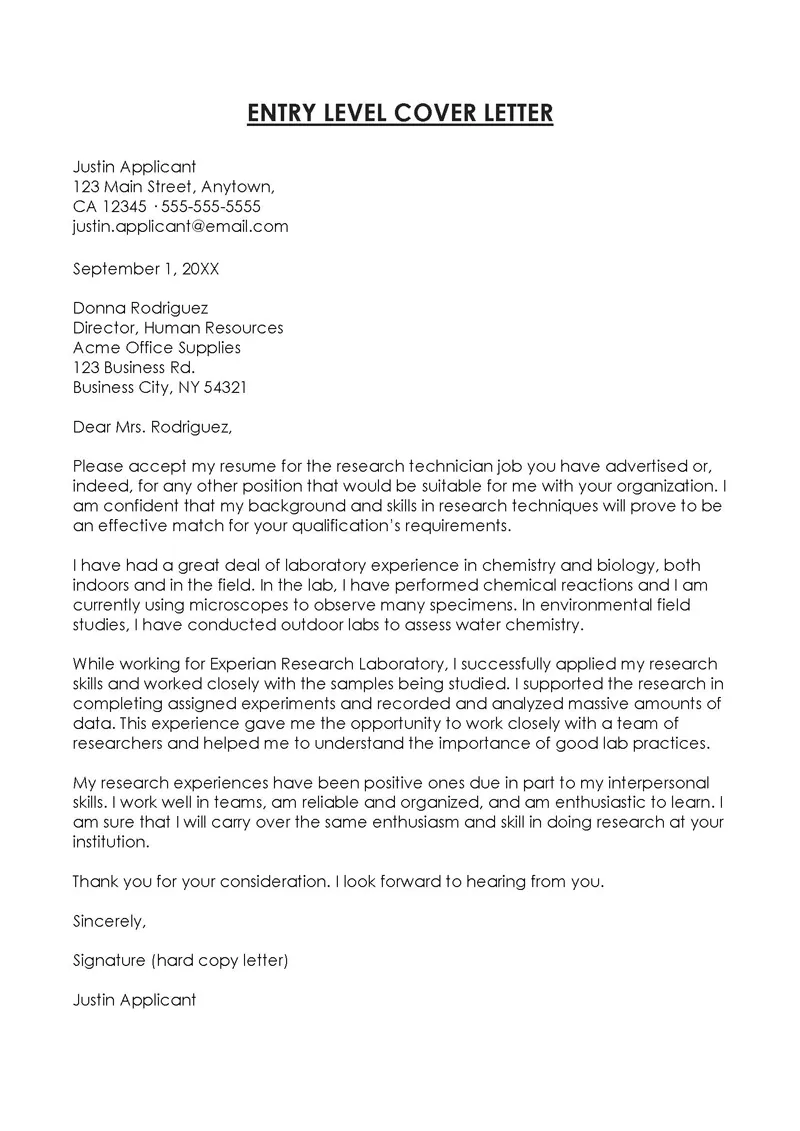
Demonstrate your initiative and eagerness to take on responsibilities beyond your internship duties. Mention any extra projects you volunteered for, skills you learned on your own, or initiatives you took to improve processes. Explain how you proactively sought opportunities to contribute to the team and the company’s goals. This demonstrates your commitment and your readiness to excel in a full-time role. Your proactive approach helps you distinguish yourself from other candidates who may have simply met their internship requirements.
Sample 5 The Volunteer Experience Advocate
This sample is designed for candidates with extensive volunteer experience. It focuses on translating those experiences into skills and demonstrating your passion and commitment. Explain how your volunteer roles have prepared you for the job. Show how you’ve developed skills such as communication, teamwork, leadership, and problem-solving through your volunteer work. Tailor your letter to the specific job description, emphasizing the skills most relevant to the role. Use the volunteer experience to showcase transferable skills and commitment.
Translating Volunteer Roles into Skills
Carefully analyze your volunteer experiences and identify the skills you’ve developed. For example, if you managed a volunteer team, you’ve likely honed your leadership and communication skills. If you organized events, you’ve developed project management and organizational skills. If you worked with the public, you’ve improved your customer service and interpersonal skills. Explain how these skills align with the job requirements. Show how your volunteer work has provided you with the ability to excel in the new role.
Demonstrating Passion and Commitment
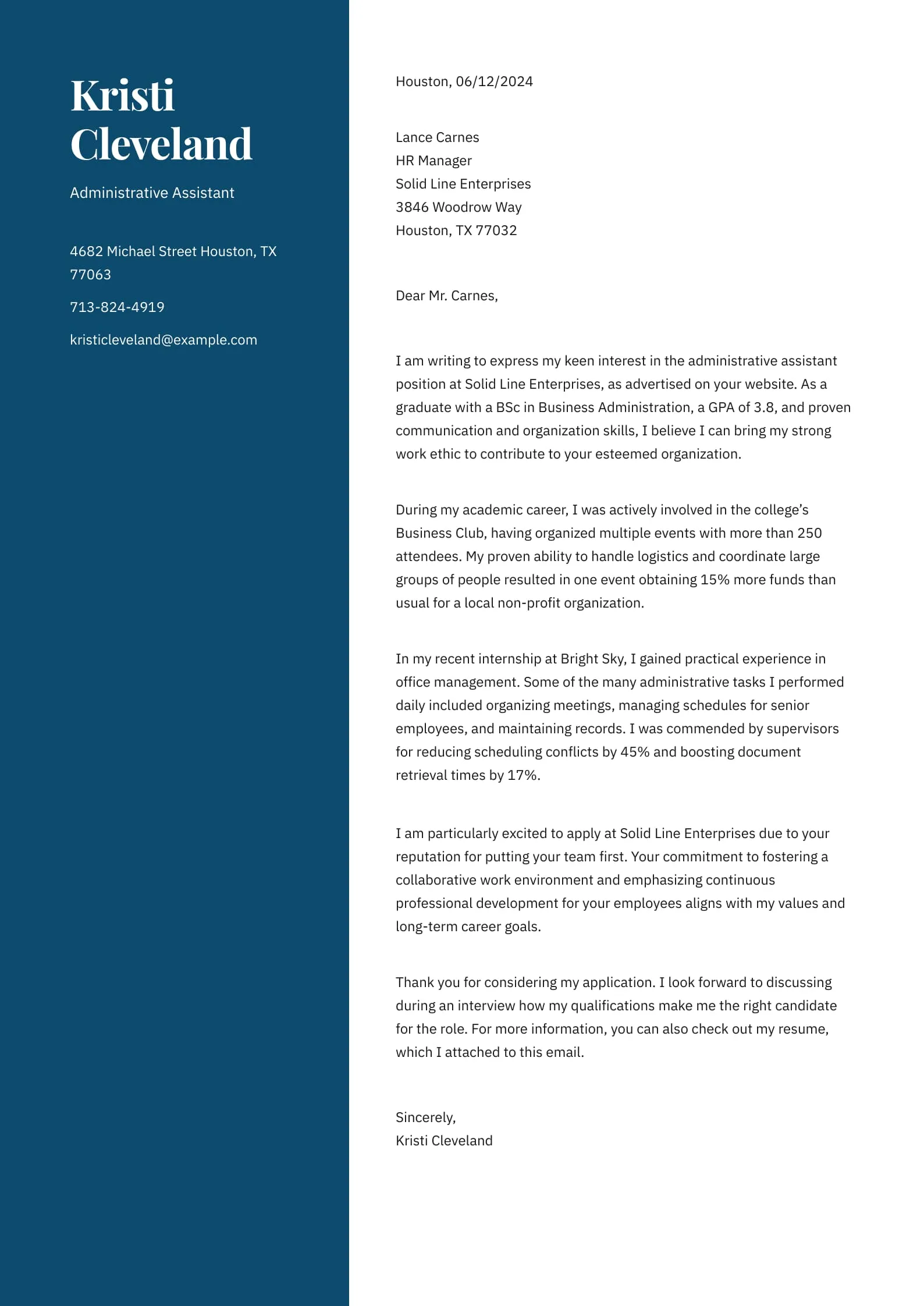
Highlight your passion for the field and your commitment to making a difference. Explain why you chose to volunteer and what motivates you. If your volunteer work aligns with the company’s mission or values, make sure to mention it. Show your enthusiasm for the opportunity and your dedication to contributing to the organization. Demonstrating passion and commitment can set you apart and show the employer that you are dedicated to succeeding.
Key Tips for Writing a Winning Cover Letter
Crafting a compelling cover letter requires attention to detail and a strategic approach. Here are some key tips to ensure your cover letter stands out and effectively conveys your qualifications and enthusiasm.
Tailoring Your Letter to the Job
Always customize your cover letter for each job application. Review the job description carefully and highlight the skills, experiences, and qualifications that directly align with the requirements. Use the same keywords and phrases found in the job posting. Demonstrate your understanding of the company’s needs and how you can address them. Generic cover letters are easily identified and often discarded. Tailoring your cover letter shows that you’ve taken the time to understand the role and the company.
Proofreading and Editing
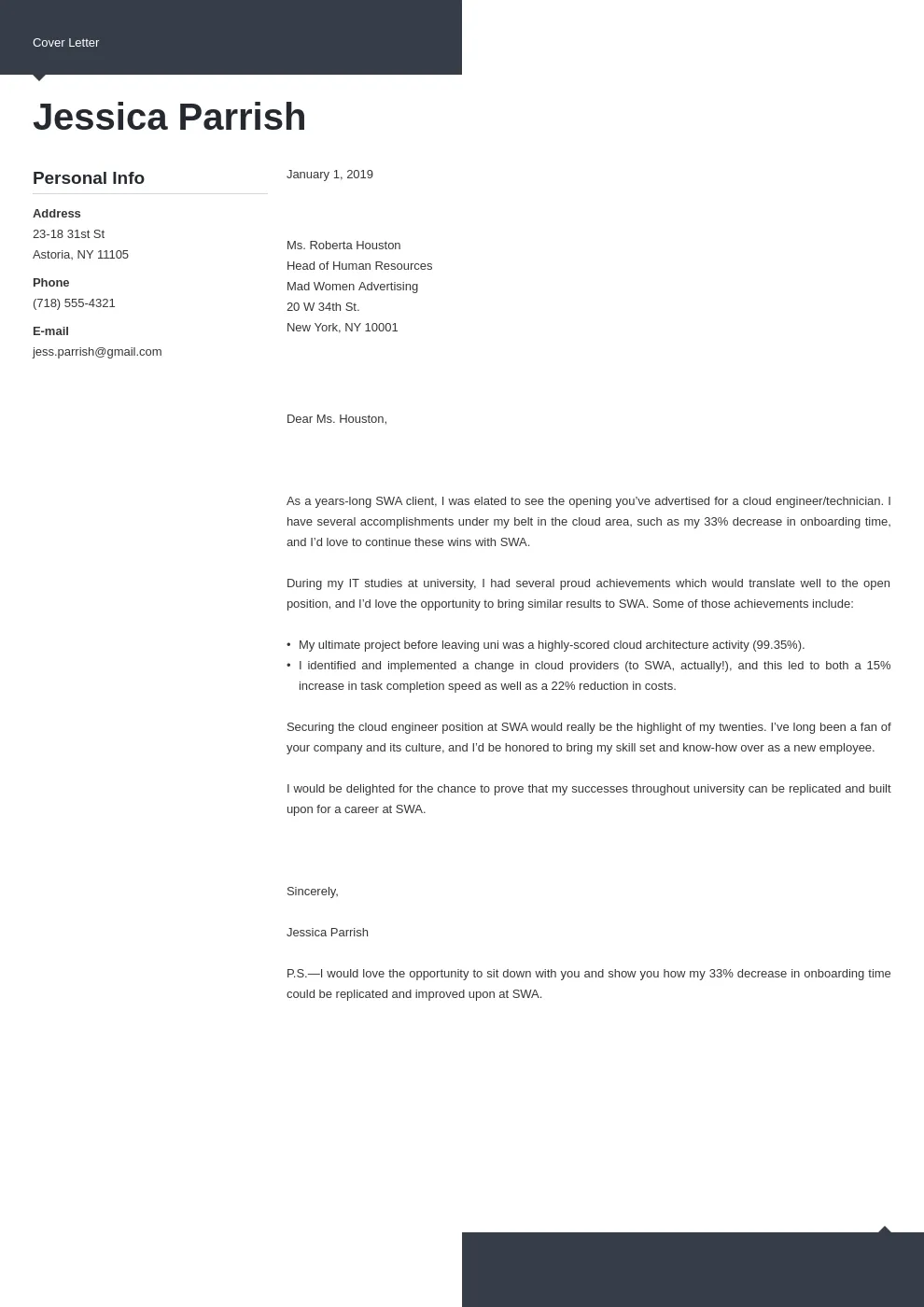
Proofread your cover letter meticulously for any grammatical errors, typos, or formatting inconsistencies. Errors can create a negative impression and undermine your credibility. Read the letter aloud to catch any awkward phrasing or unclear sentences. Ask a friend, family member, or career advisor to review your cover letter for a second opinion. Ensure that your cover letter is free of errors and conveys a professional image. Pay close attention to detail, as this reflects your attention to detail and professionalism, which is crucial in any entry-level role.
Formatting Your Cover Letter for Success
Use a clear and professional format. Choose a standard font, such as Times New Roman or Arial, in a readable size (11 or 12 points). Use single-spacing within paragraphs and double-spacing between paragraphs. Ensure your letter is well-organized with clear headings and concise paragraphs. Use bullet points where appropriate to highlight key skills or accomplishments. The formatting should be easy to read and visually appealing. A well-formatted cover letter is easy on the eyes and presents a professional and organized image. Ensure all of the text is aligned neatly and the spacing is consistent to maintain readability.
